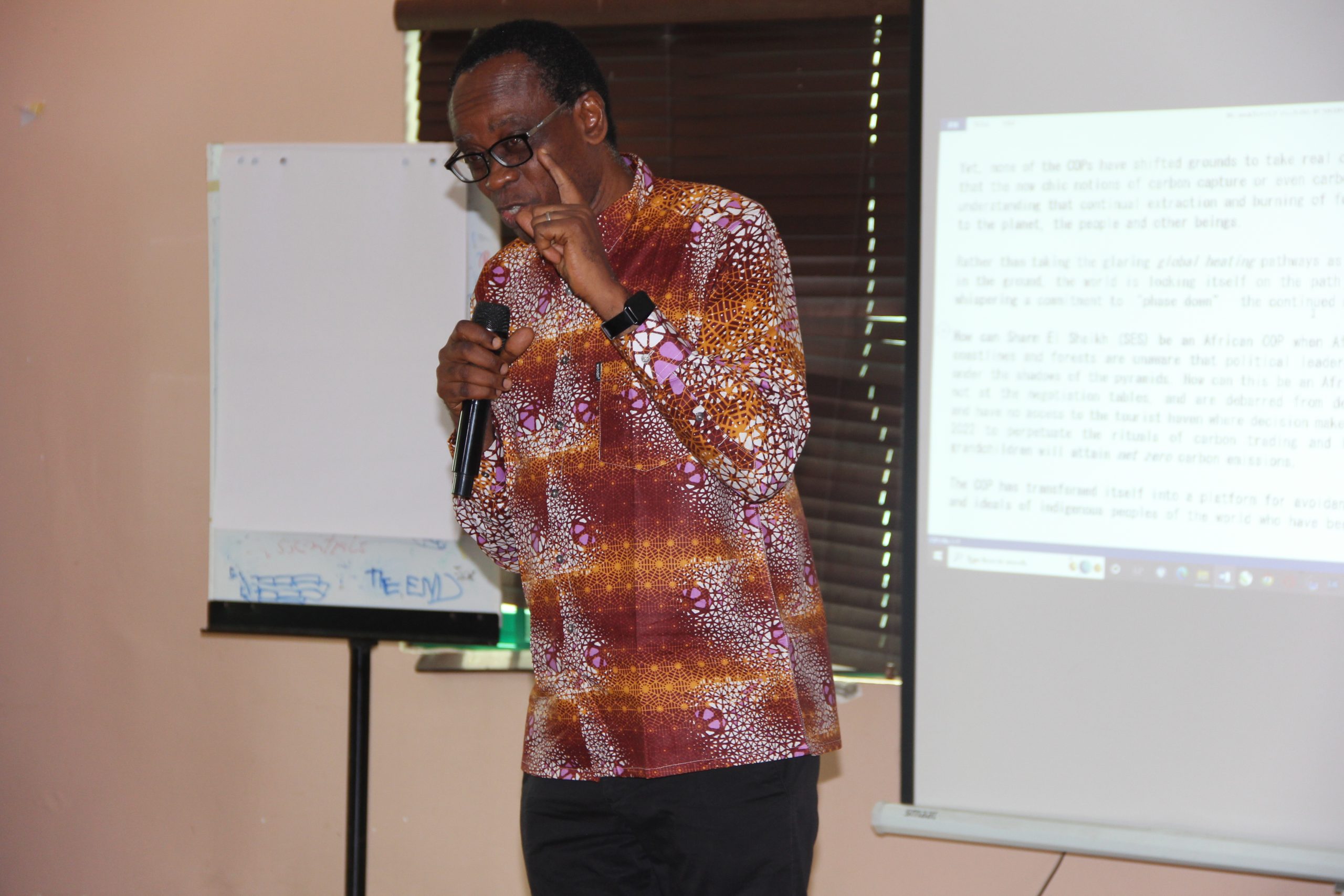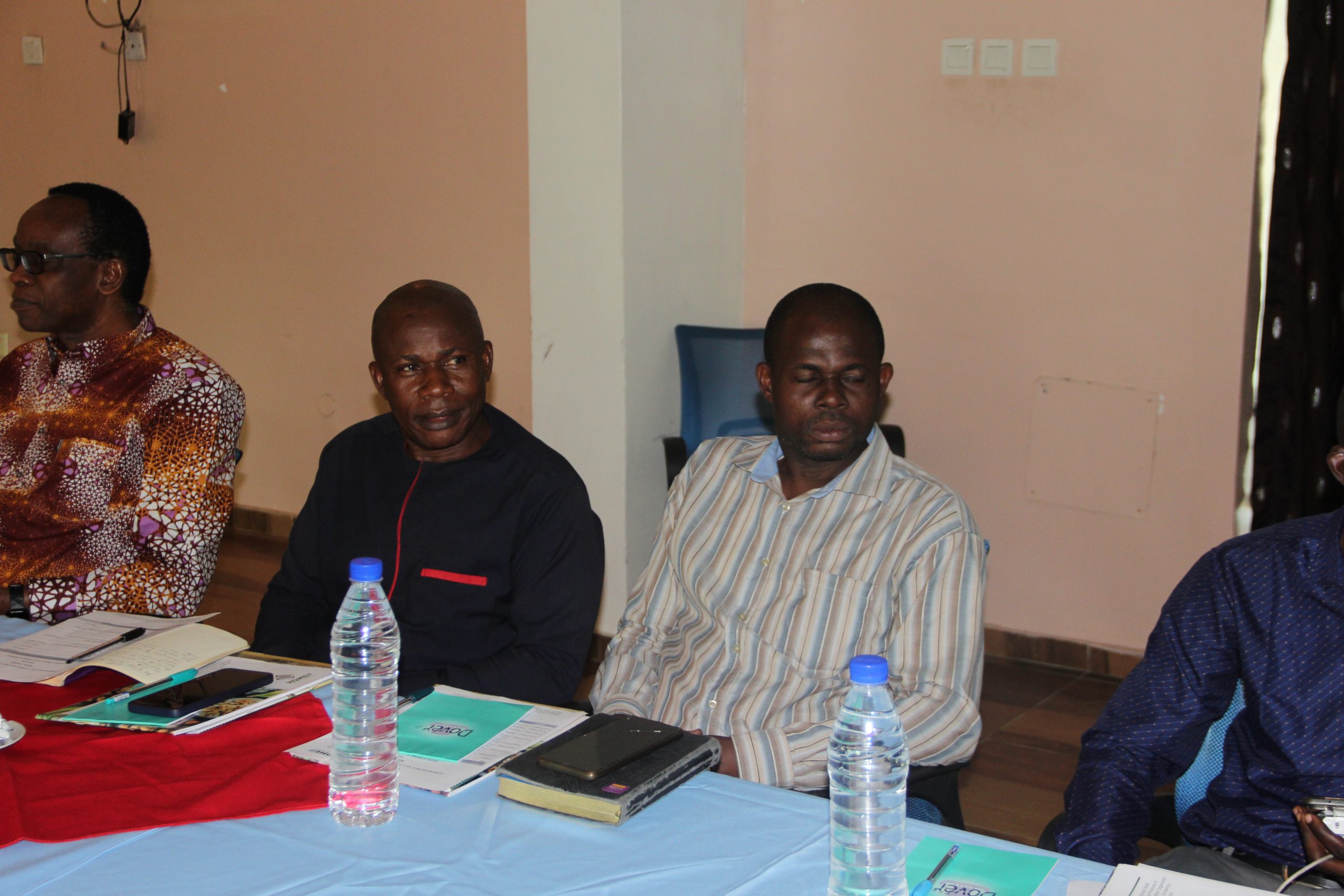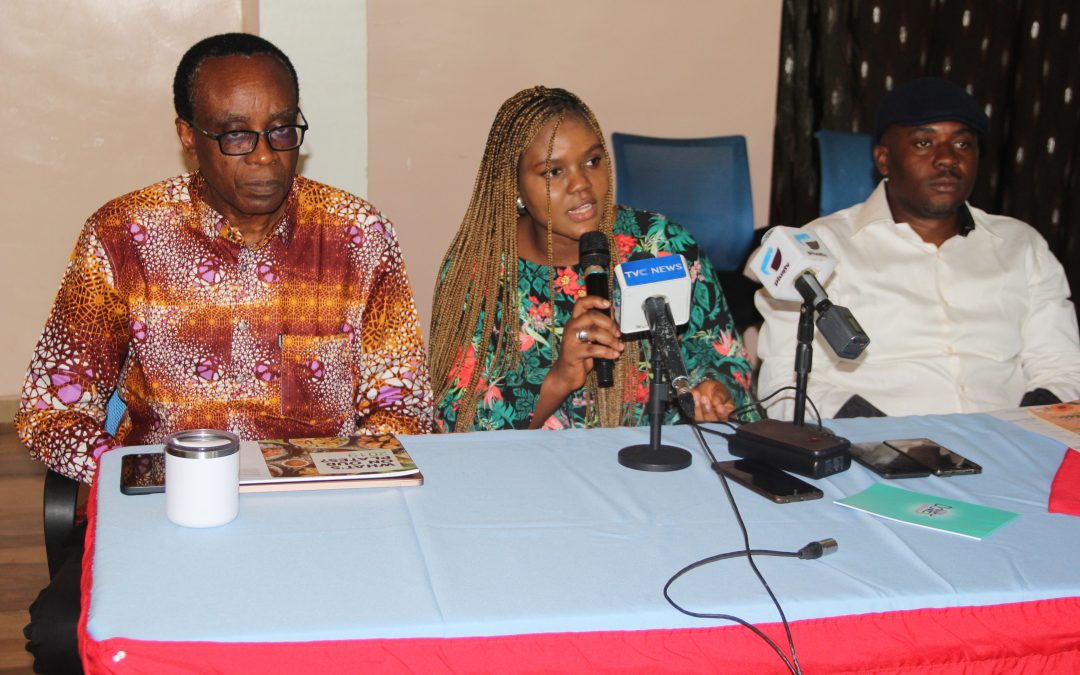The significance of Agroecology in our food system and in climate change resilience/adaptation has been proven in recent research. Governments are increasingly recognizing the importance of supporting family farms, of transforming food systems to align with Nature and applying ecological and social principles to farming. . The world is currently battling climate change relying on growing list of false solutions such as the so called climate smart agriculture, agricultural intensification, carbon capture and carbon offsetting rather than cutting emissions at source. Some of these solutions have serious adverse implications for local communities and ecosystem balance
To promote understanding on the importance of Agroecology as a viable solution to the climate crisis and foster its inclusion in Nigeria’s climate change mitigation and adaptation plans/policies, Health of Mother Earth Foundation (HOMEF) held a training for journalists in Lagos on 22 September 2022. It was stressed that agriculture and agrarian reforms rooted in agroecological practice and principles help to cool the planet and ensure climate resilience.
Director of HOMEF, Nnimmo Bassey, in his presentation on “False solutions to climate change” stated that climate smart agriculture, geoengineering and agrofuels do not tackle the climate change, but rather maintain business as usual. He admonished,“Countries that have been on the receiving end of climate change have to carefully examine the narratives driving the conversations and negotiations at the Conference of Parties (COP) of the United Nations Framework Convention on Climate Change (UNFCCC). This is important because for years the debates have regressed from demanding real actions to defending lifestyles and dominant geopolitical power positions. Although the COP is presented as a democratic space it has always been clear that it is actually a space for imperial and indeed colonial domination”
Bassey also pointed out that “Rather than taking the glaring global heating pathways as real threats to life, and leaving fossil fuels in the ground, the world is locking itself on the path of voluntary emissions reduction and weakly whispering a commitment to “phase down” the continued use of coal. The COP has transformed itself into a platform for avoidance of actions and the appropriation of ideas and ideals of indigenous peoples of the world who have been fighting for the respect of the rights of Mother Earth with a clear understanding that to do otherwise spells doom for humans and other species on this Blue Planet.”
HOMEF’s programmes manager and project lead on Hunger Politics, Joyce Brown, gave an in-depth presentation on agroecology as a viable solution, stating that “Agroecology as a science studies and leverages on the inter-connectedness of different components of ecosystems; as a practice it comprises of a set of practices that help to optimize and stabilize yield; and as a movement it recognizes and promotes the rights of women, youth and food producers in general to what they grow and how.. Agroecology combines scientific knowledge with practical, traditional and local knowledge of food producers. With adequate support in terms of access to land, better extension service, provision of storage and processing infrastructure and accessible roads, farmers who practice agroecology would do even better in terms of yeilds/overall output.”
Project officer at Environmental Rights Action/ Friends of the Earth Nigeria (ERA/FoEN), Babawale Obayanju, stated that “Human activities like the extraction of fossil fuels and the burning of it thereof causes deforestation and the impact from these activities are now with us and with grave damage to humans and the other beings living on earth. There is need to take drastic actions to stop the further warming of earth if we must continue living on this planet. We need to critically examine how we grow food. Also there is the need to change our consumption patterns and refrain from single of excessive use of plastics. We must support small holder farmers who feed the world rather than supporting the big profit driven industrial agriculture.”
HOMEF recognizes the fact that media practitioners are significant stakeholders who must equally lend their voices to foster the review of Nigeria’s climate change policies to mainstream agroecology and also to recognize it in our adaptation and mitigation strategies. Politics, poor implementation and follow up are some of the factors standing in the way of a transition to Agroecology. These barriers must be eliminated. We must at a time as this be rhetorical and ask this question – do we keep destroying the remaining healthy environment to grow economically?
We must move beyond seeing the climate crisis only from the point of view of greenhouse gases to seeing the injustices and inequality the market based systems have imposed. We must decide to make a quick and just transition to Agroecology.








